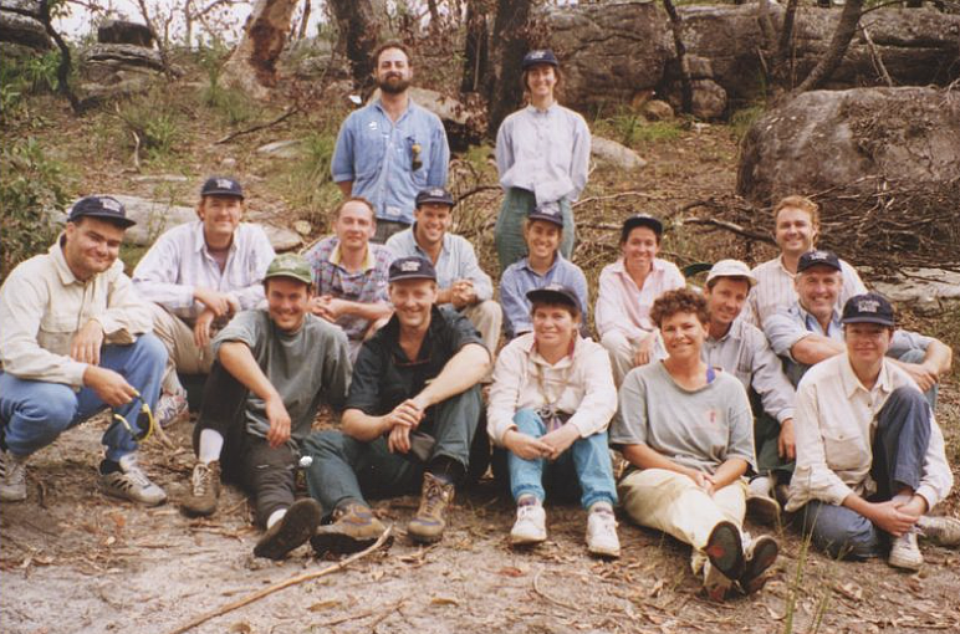
ICDA and BoardPro partnership unlocks digital governance tools for not-for-profits nationwide
Posted on 10 Dec 2025
Adele Stowe-Lindner, Executive Director, Community Directors The Institute of Community Directors…
Posted on 25 Mar 2025
By Matthew Schulz, journalist, Institute of Community Directors Australia

Only a small fraction of not-for-profits (NFPs) have lodged the new paperwork required by the Australian Taxation Office (ATO) ahead of the March 31 deadline, with thousands instead seeking charity registration to avoid the requirement.
The new system sees non-charitable NFPs required to self-assess their tax-exempt status. ATO assistant commissioner Jennifer Moltisanti said more than 20,000 not-for-profitsNFPs had lodged the new self-review returns by March 14.
The new rules, described by the ATO as the biggest change to the sector since the creation of the Australian Charities and Not-for-profits Commission (ACNC), are expected to affect around 70 per cent of not-for-profits. However, the exact number remains unclear.
In September last year, Moltisanti said 155,000 NFPs had been alerted that they would be affected by the changes. This month, she nominated the numbers affected as “more than 100,000”.
Moltisanti’s statement on the number of organisations that have so far lodged their information – around 20,000 – would put the response rate at 13–20 per cent.
The ATO declined to provide exact numbers on how many N FPs had lodged returns or answer a series of detailed questions from the Community Advocate, but Moltisanti’s latest estimate is half of what the ATO last year predicted would be lodged by the deadline. This is despite a widespread ATO promotion campaign and about $5.4 million being spent on introducing the changes.
The Community Advocate asked the ATO the following questions. The agency did not respond directly to the questions but reiterated a general response in line with this media release.
Moltisanti said the self-review measure aimed to “enhance transparency and integrity in the tax, super and registry system by ensuring only eligible NFPs are accessing income tax exemptions”.
The new rules require non-charities with an Australian Business Number (ABN) to lodge the annual return or face losing that tax exemption.

Moltisanti said the ATO would support not-for-profits “genuinely trying to do the right thing, including if they’ve missed the deadline”, but also warned in a commentary to the sector that the authority would “review those who intentionally ignore their obligations”.
ATO penalties for late lodgement of returns, reports or statements are $1,565 per month for larger organisations, but the ATO would not say whether it would introduce a grace period or begin enforcement from April 1.
The original deadline for lodgement was October 31 last year, but widespread confusion prompted a rethink.
The rollout has been criticised by sector advocates and the Shadow Charities Minister, Senator Dean Smith, who instigated a Senate inquiry into the rollout. That inquiry heard complaints about poor communication, a complex process, unnecessary red tape and higher costs for organisations seeking accounting and legal advice.
The inquiry recommended:
The ATO has repeatedly defended the self-review changes, saying that it has consulted the sector extensively, and that the changes are easy to navigate.
“I think it’s incredibly disappointing that the ATO are now adding a lack of transparency to the issues many of us have with the way this scheme has been rolled out and developed.”
Many organisations are voting with their feet by seeking to opt out of the ATO process.
Registered charities are not required to lodge the self-review return, and this has prompted a sharp rise in applications to the ACNC.
In response to questions from the Community Advocate, the ACNC said that 50 per cent of all new applications for charity registration between July 2024 and March 2025 were prompted by the new tax measure.
The ACNC said that an additional 1795 organisations had signed up as charities as a direct result of the ATO’s tax exemption measure.
While organisations face a month-long wait for applications to be processed, the delay is a significant improvement on the four-month waits that followed a rush of applications last year.
A spokesperson for the ACNC said it had acted on several of the recommendations from the Senate inquiry, including reviewing the guidance related to charity registrations.
“We have shared our guidance with the ATO to ensure there is consistency in our guidance products,” the spokesperson said.
The ACNC also sought to further explain the income-tax exempt status of charities, and where non-charity organisations would need to lodge the new return.
The spokesperson said:
"Since the establishment of the ACNC, organisations that have wished to access Commonwealth tax concessions, including income tax exemptions, should be registered with the ACNC if they meet the definition of charity.
"If a NFP that has been self-assessing as income tax exempt wishes to continue to receive those concessions and they are eligible to be a registered charity – ie they meet the definition of charity, they cannot self-assess as income tax exempt – they must register with the ACNC.
"If they do not meet the definition of charity, they cannot be a registered charity and therefore if they are a NFP and have an active ABN, they must lodge an annual NFP self-review return to the Australian Taxation Office (ATO) to continue to receive the income tax exemption."
Community Council for Australia chief executive David Crosbie – who raised concerns about the changes to the ATO’s Not-for-profit Stewardship Group before being asked to step down from the group – said he was disappointed that the ATO would not reveal certain details of the rollout.

“I think it’s incredibly disappointing that the ATO are now adding a lack of transparency to the issues many of us have with the way this scheme has been rolled out and developed.”
He supported the Senate inquiry recommendations, including shifting responsibility for the matter to the ACNC.
“The ATO is not the ideal authority to be collecting this information for a whole range of reasons, but the processes that they’ve created have made it very difficult for not-for-profits.”
Crosbie said this was the ATO’s first major attempt to engage with the not-for-profit sector at a large scale, and it had been found wanting.
By comparison, soon after its formation the ACNC asked charities to complete a voluntary information statement “with a lot more questions”, and the sector's response rate was more than 80 percent.
“The ACNC has one of the highest voluntary compliance rates in the world of this type of regulator and it’s sitting there with ‘not-for-profit’ in its name, and we haven’t given it this task,” Crosbie said.
“Here we have the opposite in terms of response rates. You have to wonder what’s going on with the ATO’s policy planning.”
He said the ATO should shift to a phased rollout, starting with higher-income NFPs.
“They should have followed their own advice in 2018 and started with the higher-risk groups above the $2 million revenue threshold.
“The whole measure to me seems ill-advised, and I’m still not sure what the policy goal really is.”
Crosbie said that before leaving the ATO advisory group, he had tried to raise these concerns.
“I think anyone who went to those meetings would know that I was a very forthright critic of the approach that the ATO were taking, as well as the questionable benefit of the whole program, the method, and the intent.”

Posted on 10 Dec 2025
Adele Stowe-Lindner, Executive Director, Community Directors The Institute of Community Directors…

Posted on 10 Dec 2025
The Australia Institute has called on the federal government to force Australian businesses to be…

Posted on 10 Dec 2025
Economic empowerment is essential to enabling recovery, restoring agency and preventing future…
Posted on 10 Dec 2025
A long-time advocate for rough sleepers in northern New South Wales has been named her state’s…

Posted on 10 Dec 2025
What a year 2025 has been, particularly at a national level where the Parliament and politics as we…

Posted on 10 Dec 2025
Anyone working in an organisation knows it: meetings follow one after another at a frantic pace. On…

Posted on 10 Dec 2025
As a qualified yoga instructor who learned the practice in her hometown of Mumbai, Ruhee Meghani…

Posted on 10 Dec 2025
Community Directors trainer Jon Staley knows from first-hand experience the cost of ignoring…

Posted on 10 Dec 2025
Stressed, overwhelmed, exhausted… if you’re on a not-for-profit board and these words sound…

Posted on 10 Dec 2025
The Institute of Community Directors Australia trains over 22,000 people each year, which gives us…

Posted on 09 Dec 2025
The late Sir Vincent Fairfax is remembered as a business leader, a chairman of AMP, and an active…

Posted on 08 Dec 2025
A pioneering welfare effort that helps solo mums into self-employment, a First Nations-led impact…